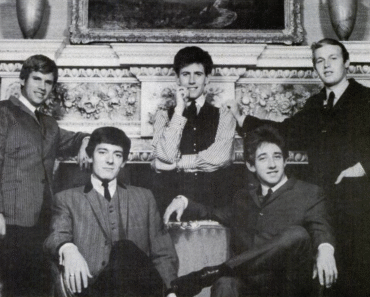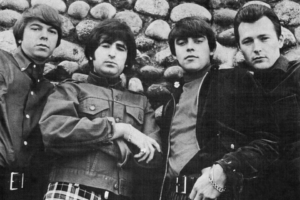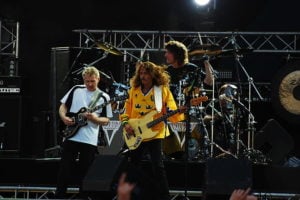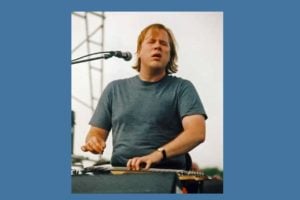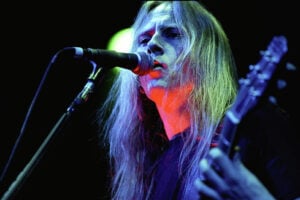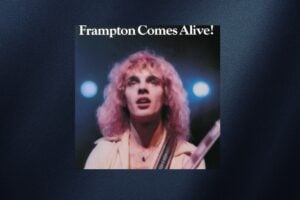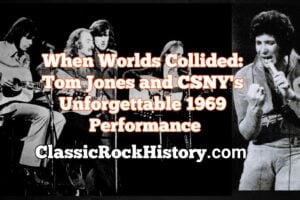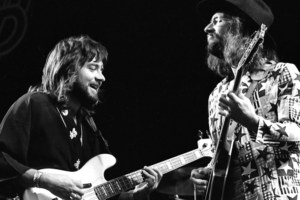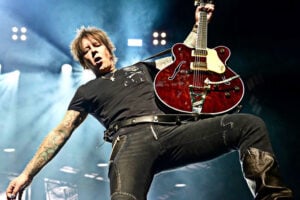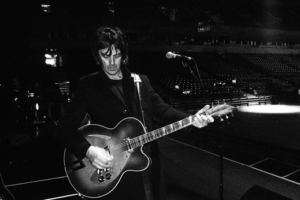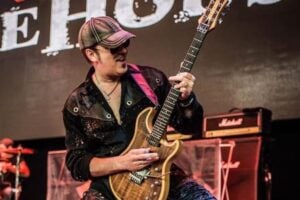
Feature Photo: Maddy Julien, CC BY-SA 2.0 <https://creativecommons.org/licenses/by-sa/2.0>, via Wikimedia Commons
Three rappers from Brooklyn turned the music world upside down when they became the first white group to achieve mainstream success in hip hop. The Beastie Boys formed in New York City in 1981, originally as a hardcore punk band called the Young Aborigines before transitioning to hip hop and changing their name. The group released eight studio albums over their 31-year career, selling 20 million records in the United States and 40 million worldwide, making them the biggest-selling rap group since Billboard began recording sales in 1991. They achieved seven platinum-selling albums from 1986 to 2004, with four albums reaching number one on the Billboard 200 chart.
The band’s journey began with their 1986 debut Licensed to Ill, which became the first rap album to top the Billboard 200 chart and established them as pioneers in blending rock and hip hop. Their success continued with critically acclaimed albums including Paul’s Boutique, Check Your Head, Ill Communication, and the Grammy-winning Hello Nasty. The group disbanded in 2012 following the death of founding member Adam Yauch from cancer, with surviving members Mike D and Ad-Rock confirming they would not continue making music under the Beastie Boys name.
The Beastie Boys’ cultural impact extended beyond music, as they became advocates for social causes and evolved from the controversial misogynistic image of their early career to become spokesmen for progressive values. They were inducted into the Rock and Roll Hall of Fame in 2012, becoming only the third rap group to receive this honor. Their legacy includes numerous awards, groundbreaking music videos, and influence on multiple generations of artists across various genres.
Mike D
Michael Louis Diamond was born on November 20, 1965, in New York City to an art dealer father and interior designer mother, growing up surrounded by artwork on the Upper West Side. He co-founded the Young Aborigines in 1979 with John Berry, which evolved into the Beastie Boys when Adam Yauch joined as bassist in 1981. Mike D served as the group’s drummer and vocalist throughout their entire career from 1981 to 2012, playing on every album from their punk beginnings through their final release Hot Sauce Committee Part Two.
As a founding member, Mike D played drums and provided vocals on all eight Beastie Boys studio albums, contributing to the group’s evolution from hardcore punk to hip hop pioneers. He was instrumental in Licensed to Ill, which established their sound and commercial success, and continued as a driving creative force through albums like Paul’s Boutique, Check Your Head, and Ill Communication. His contributions included not only musical performance but also business acumen, as he founded the band’s Grand Royal Records label in 1992, which signed artists like Luscious Jackson and Ben Lee.
Beyond the Beastie Boys, Mike D has pursued numerous creative endeavors including interior design, wine curation, and radio hosting. He designed Brooklyn-themed toile wallpaper used in New York’s Marquee nightclub renovation and worked as a sommelier for the Los Angeles restaurant Hearth & Hound. Since 2016, he has hosted The Echo Chamber radio show on Apple Music’s Beats 1, showcasing his eclectic musical tastes and interviewing various artists. He has also worked as a producer for artists including Portugal. The Man and the punk duo Slaves, while maintaining his passion for surfing, which has become central to his lifestyle in Malibu. Mike D co-authored the Beastie Boys Book in 2018 with Ad-Rock, providing an unconventional memoir of the band’s history.
Kate Schellenbach
Katherine A. Schellenbach was born on January 5, 1966, in New York City and became a founding member of the Beastie Boys in 1981 when she joined the Young Aborigines as they transitioned into their new identity. She served as drummer and provided backing vocals from 1981 to 1984, playing a crucial role in the band’s early development from punk rock to their initial experiments with hip hop. Her tenure ended in 1984 when she was dismissed from the group as they fully embraced hip hop and developed what Ad-Rock later described as their “new tough-rapper-guy identity.”
During her time with the Beastie Boys, Schellenbach recorded on their first EP Polly Wog Stew in 1982 and the novelty hip hop single “Cooky Puss” in 1983, which marked the band’s first successful venture into rap music. Her drumming was integral to their transition period, bridging their punk roots with their emerging hip hop sound. She performed at venues like CBGB and Max’s Kansas City, establishing herself as part of New York’s vibrant downtown music scene of the early 1980s.
After leaving the Beastie Boys, Schellenbach found greater success with Luscious Jackson, the alternative rock band she joined in the early 1990s and which was eventually signed to the Beastie Boys’ own Grand Royal label. She has worked as a television producer, winning an Emmy Award for her segment work on The Ellen DeGeneres Show and later producing for The Late Late Show with James Corden. Her diverse career has included brief stints with punk bands like the Lunachicks and collaborations with various artists including the Indigo Girls, Blondie, and Joan Jett. Schellenbach has also appeared in the Beastie Boys Book, providing her perspective on her time with the band, and has maintained relationships with her former bandmates despite the circumstances of her departure.
John Berry
John Berry was born on May 31, 1963, and became a founding member of the Beastie Boys alongside Mike Diamond, whom he met at the Walden School in Manhattan. He joined the Young Aborigines and is credited with suggesting the name change to Beastie Boys when Adam Yauch joined as bassist in 1981. Berry served as guitarist from 1981 to 1982, hosting the band’s first performances at his Manhattan loft apartment and playing on their earliest recordings.
Berry’s contribution to the Beastie Boys was brief but significant, as he played guitar on the band’s first EP Polly Wog Stew, recorded in November 1982. His loft became the band’s first performance space, where they held small concerts in front of intimate audiences while developing their sound. The first official Beastie Boys show took place at Berry’s residence, marking the beginning of their journey from bedroom rehearsals to international fame.
After leaving the Beastie Boys in 1982, Berry pursued music with several other bands including Even Worse, Big Fat Love, Highway Stars, Bourbon Deluxe, and Thwig. His departure came as the band was transitioning toward a more professional approach, which his father noted he “wasn’t up for that rigour.” Berry remained friendly with his former bandmates and continued creating both music and art until his health declined. He died on May 19, 2016, at age 52 from frontotemporal dementia after several years of declining health. The surviving Beastie Boys acknowledged his foundational role when they were inducted into the Rock and Roll Hall of Fame in 2012, with Ad-Rock reading a speech from the late MCA that mentioned practicing at Berry’s loft while his father would yell at them to turn down the music.
MCA
Adam Nathaniel Yauch was born on August 5, 1964, in Brooklyn Heights, New York, to architect father Noel and social worker mother Frances. He joined the Young Aborigines as bassist in mid-1981 when original bassist Jeremy Shatan left New York City, and the band subsequently became the Beastie Boys. MCA served as bassist and vocalist from 1981 until his death in 2012, anchoring the group’s sound throughout their entire career and often acting as their most organized and driven member.
MCA’s contributions to the Beastie Boys extended far beyond his bass playing and distinctive gruff vocals, as he appeared on all eight studio albums from Licensed to Ill through Hot Sauce Committee Part Two. He was crucial to the band’s creative evolution, helping craft their transformation from punk rockers to hip hop innovators. His bass work and vocal contributions were essential to classics like “Sabotage,” “Intergalactic,” and “So What’cha Want,” while his leadership and organization skills kept the group focused and productive throughout their three-decade career. He also served as the band’s primary director for music videos, working under the pseudonym Nathanial Hörnblowér.
Beyond music, MCA became deeply involved in filmmaking and activism, founding Oscilloscope Laboratories in 2002 as both a recording studio and film production company. He directed the 2006 Beastie Boys concert film “Awesome; I Fuckin’ Shot That!” and the 2008 basketball documentary “Gunnin’ For That #1 Spot,” while his company distributed acclaimed films including “Exit Through the Gift Shop” and “We Need To Talk About Kevin.” As a practicing Buddhist, he organized the Tibetan Freedom Concerts in the late 1990s and founded the Milarepa Fund to support Tibetan independence. MCA died on May 4, 2012, at age 47 from parotid cancer after a three-year battle with the disease. His death led to the immediate disbandment of the Beastie Boys, and his will specifically forbade the use of the band’s music in advertisements, a provision that has been successfully defended in court multiple times.
Ad-Rock
Adam Keefe Horovitz was born on October 31, 1966, in South Orange, New Jersey, and raised on Park Avenue in Manhattan by playwright father Israel Horovitz and artist mother Doris Keefe. He initially fronted the punk band The Young and the Useless, which frequently performed with the Beastie Boys in the early New York hardcore scene. Ad-Rock joined the Beastie Boys in 1982 at age 16, replacing both departing guitarist John Berry and drummer Kate Schellenbach as the group transitioned from punk to hip hop.
Ad-Rock became the third core member of the Beastie Boys, providing vocals and guitar from 1982 to 2012 and appearing on all their major releases from their breakthrough Licensed to Ill through their final album Hot Sauce Committee Part Two. He was particularly influential in the band’s later creative direction, with his bandmates crediting him as the author of approximately 80 percent of the music on Hello Nasty, their Grammy-winning 1998 album. His guitar work helped maintain the band’s rock elements as they evolved their hip hop sound, and his vocal contributions were integral to their three-part harmony approach to rap.
Throughout the Beastie Boys’ active years, Ad-Rock pursued a side project called BS 2000 with drummer Amery “AWOL” Smith, releasing the experimental album Simply Mortified in 2001. He has maintained an active career in music production and remixing under the alias 41 Small Stars, working with artists including Fatboy Slim, Le Tigre, and Beck. His acting career has included roles in films like “Lost Angels,” “Roadside Prophets,” “While We’re Young,” and “Golden Exits,” typically playing troubled or unconventional characters. Since MCA’s death in 2012, Ad-Rock has collaborated with Mike D on various Beastie Boys-related projects including the 2018 memoir Beastie Boys Book and continues to create music daily on his computer, though he has confirmed that no new music will be released under the Beastie Boys name. He currently plays bass in The Tender Moments, the backing band for New York cabaret performer Bridget Everett.
Check out similar articles on ClassicRockHistory.com Just click on any of the links below……
Complete List Of Beastie Boys Songs From A to Z
Top 10 Beastie Boys Songs
Top 10 Beastie Boys Album Covers
Complete List Of Beastie Boys Albums And Discography
Read More: Artists’ Interviews Directory At ClassicRockHistory.com
Read More: Classic Rock Bands List And Directory



